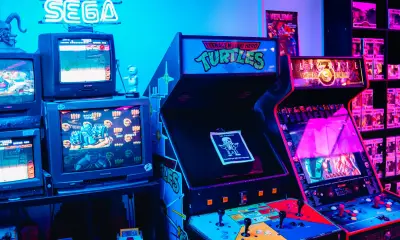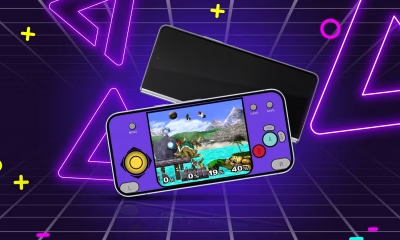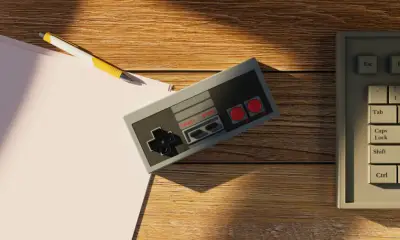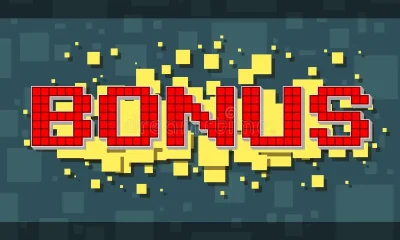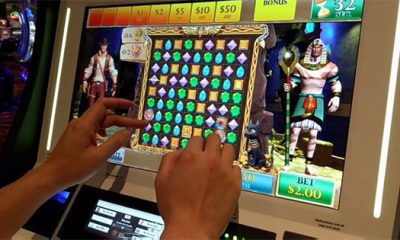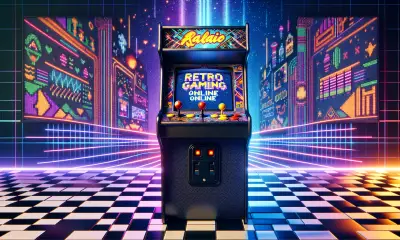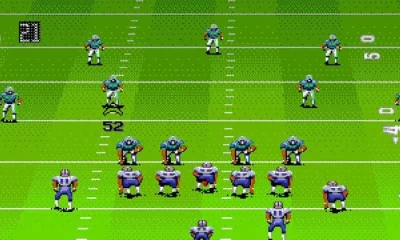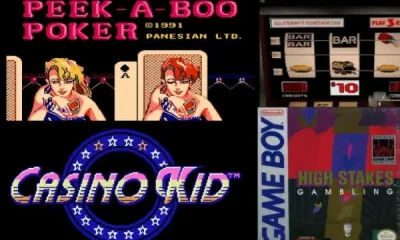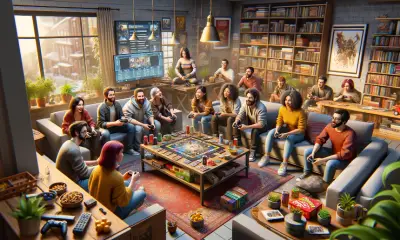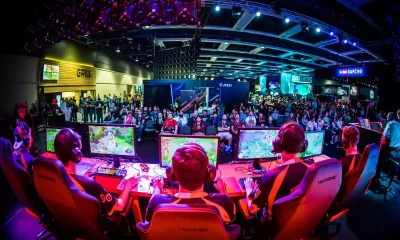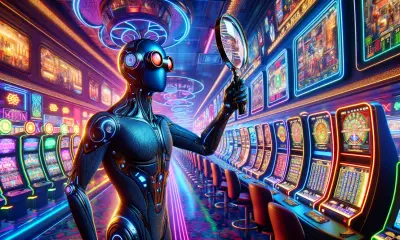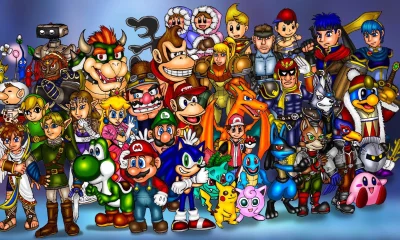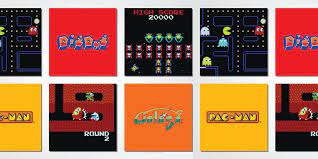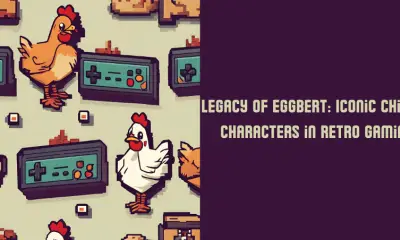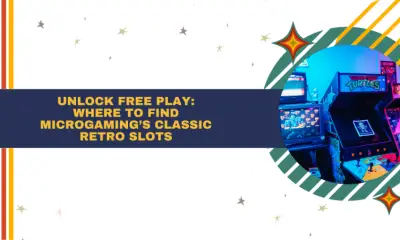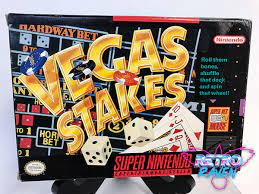Retro-style games, from pixelated classics to modern titles mimicking old-school aesthetics, hold a special place in the gaming world. Despite cutting-edge graphics and sprawling open-world adventures dominating today’s market, these games captivate players with their unique charm. For those who enjoy exploring retro-inspired gameplay in other formats, the Sweet Bonanza 1000 slot demo offers a vibrant, nostalgic twist on slot gaming, blending colorful visuals with modern mechanics. Their success lies in a potent mix of nostalgia, engaging gameplay, and clever integration of modern features, creating an experience that feels both familiar and fresh.
The Nostalgia Factor in Retro Gaming
Nostalgia is the heartbeat of retro-style games, pulling players back to simpler times. These games evoke memories of late-night sessions with friends, the thrill of beating a tough level, or the joy of unwrapping a new cartridge. They connect players to their past, making every pixel and sound a time machine. This emotional pull keeps retro games alive, as players seek to relive those formative moments.
- Classic consoles like the NES and Sega Genesis.
- Iconic games such as Super Mario Bros. and The Legend of Zelda.
- Physical media like cartridges and arcade cabinets.
- Retro gaming peripherals, including chunky controllers.
Why Nostalgia Matters in Gaming
Nostalgia in gaming isn’t just about fond memories; it’s a bridge across generations. Parents share Pac-Man with their kids, sparking conversations about the past. This emotional resonance creates a sense of community, as players bond over shared experiences. Nostalgia also taps into a longing for simplicity in an era of complex, high-budget games, offering a comforting escape to a time when gaming felt more straightforward and pure.
How Nostalgia Fuels Retro Game Popularity
The gaming industry capitalizes on nostalgia, driving demand for retro-style games through re-releases and remakes. Companies like Nintendo and Sega rerelease classic titles on modern platforms, while remakes breathe new life into beloved series. These trends show how nostalgia shapes market strategies, keeping retro games relevant.
- Pokémon Red and Blue: Remade as Pokémon FireRed and LeafGreen.
- Sonic the Hedgehog: Revived with Sonic Mania, a nostalgic yet fresh take.
- Final Fantasy VII Remake: A modern reimagining of a PS1 classic.
- Nintendo Switch Online: Offers access to NES and SNES libraries.
Timeless Game Design Principles
Retro-style games thrive because their design prioritizes fun over flash. Unlike modern titles that rely on cinematic storytelling, retro games focus on tight mechanics and clear goals. This simplicity makes them accessible yet challenging, appealing to players of all skill levels.
- Limited resources, like lives or continues, heightening stakes.
- Clear objectives, such as reaching the end of a level.
- Responsive controls for precise gameplay.
- Gradual difficulty curves that reward skill.
Simplicity Leading to Depth in Retro Games
Simple mechanics often hide surprising depth. Take Tetris: stacking blocks sounds basic, but the game demands quick thinking and strategy as the pace accelerates. Similarly, Super Metroid uses minimal controls to create exploration-driven gameplay that feels expansive. This balance of simplicity and complexity keeps players hooked, proving that less can be more.
Player-Centric Design in Classic Games
Retro games put players in the driver’s seat, emphasizing action over narrative fluff. Unlike modern titles with lengthy cutscenes, classics like Mega Man let players dive straight into the challenge. This focus on player agency creates a direct, rewarding experience.
- Retro: Immediate gameplay, minimal tutorials (Contra).
- Modern: Story-driven intros, extended cinematics (The Last of Us).
- Retro: Skill-based progression (Castlevania).
- Modern: Hand-holding mechanics, frequent checkpoints.
Iconic Elements: Pixel Art and Chiptunes
The visual and auditory signatures of retro-style games—pixel art and chiptunes—are more than stylistic choices; they’re cultural touchstones. These elements define the retro aesthetic, evoking joy and creativity within technical limits.
- Super Mario World: Vibrant, colorful pixel art.
- Chrono Trigger: Detailed sprites with emotional depth.
- Mega Man 2: Fast-paced chiptune melodies.
- Pokémon Gold/Silver: Memorable 8-bit soundscapes.
The Timeless Charm of Pixel Art
Pixel art is a testament to creativity under constraints. With limited resolution, artists crafted vivid worlds using blocky sprites. Games like Final Fantasy VI convey epic stories through expressive pixels, proving that imagination trumps graphical power. Today, pixel art remains a beloved art form, celebrated for its clarity and charm.
Memorable Chiptunes That Define Eras
Chiptunes, the beeping melodies of early consoles, are inseparable from retro gaming. These tracks, created with limited sound channels, became cultural icons. They linger in players’ minds, instantly transporting them back to their gaming roots.
- The Legend of Zelda: Koji Kondo’s overworld theme.
- Mega Man 2: Dr. Wily’s stage music.
- Tetris: Korobeiniki folk tune adaptation.
- Pokémon Red/Blue: Pallet Town’s serene melody.
Modern Games with a Retro Twist
Modern retro-style games blend old-school vibes with new ideas, attracting diverse audiences. Developers use pixel art and chiptunes alongside modern mechanics like autosaves or online multiplayer, creating accessible yet nostalgic experiences.
- Platformers: Precision-based games like Hollow Knight.
- Roguelikes: Randomized adventures like Dead Cells.
- Metroidvanias: Exploration-driven titles like Axiom Verge.
- RPGs: Story-rich games like Undertale.
Incorporating Retro Aesthetics in New Releases
Developers weave retro aesthetics into new games by mimicking 8-bit or 16-bit visuals while adding modern polish. For example, Stardew Valley pairs pixel art with deep farming and social mechanics, appealing to fans of Harvest Moon and new players alike. This fusion keeps retro-style games relevant in a competitive market.
Showcasing Successful Modern Retro Titles
Several modern retro games have achieved critical and commercial success, proving the genre’s vitality.
- Shovel Knight: A love letter to NES platformers with tight controls and vibrant art.
- Celeste: A challenging platformer with pixel art and a heartfelt story.
- Hollow Knight: A sprawling Metroidvania with haunting visuals.
- Undertale: An RPG with retro graphics and innovative combat.
The Cultural Impact of Retro Gaming
Retro gaming is a cultural force, sustained by passionate communities and media. From conventions to online forums, fans celebrate the games that shaped their lives, keeping the retro spirit alive.
- MAGFest: A music and gaming festival with retro arcades.
- Retro Gaming Expo: Showcases classic consoles and games.
- r/retrogaming: A Reddit community for enthusiasts.
- Speedrun communities: Groups mastering retro titles.
Conventions and Communities Celebrating Retro Games
Conventions like PAX and online forums foster a sense of belonging among retro fans. These spaces let players trade cartridges, compete in tournaments, or discuss rare finds. They preserve the communal joy of gaming, ensuring retro titles remain a shared passion.
Retro Gaming in Popular Media and Streaming
Retro games shine in media and streaming. Movies like Wreck-It Ralph nod to arcade culture, while Twitch streamers play classics to huge audiences. These platforms introduce retro games to new generations.
- The Gaming Historian: YouTube channel on gaming history.
- RetroRick: Twitch streamer playing SNES and Genesis titles.
- Speedrunning channels: GDQ events streaming Super Mario 64 runs.
- Classic Game Room: Reviews of retro consoles and games.
Making Retro Games Accessible and Affordable
Retro-style games are easier to play than ever, thanks to emulation and digital platforms. These tools make classic titles affordable and accessible, broadening their reach.
- Emulators like RetroArch for playing ROMs.
- Nintendo Switch Online for NES/SNES libraries.
- Mini consoles like the SNES Classic.
- Digital storefronts like Steam for retro re-releases.
Low Barriers to Entry for Classic Gaming
Classic games run on everything from original consoles to modern PCs and smartphones. This flexibility means anyone can enjoy Donkey Kong or Street Fighter II without breaking the bank, making retro gaming inclusive.
Emulation and the Preservation of Gaming History
Emulation preserves gaming history by keeping old titles playable. Projects like MAME archive arcade games, while communities digitize rare cartridges. These efforts ensure retro games endure.
- MAME: Preserves arcade machine ROMs.
- Internet Archive: Hosts emulated console games.
- RetroPie: Turns Raspberry Pi into a retro console.
- OpenEmu: Mac-based emulator for multiple systems.
Unique Experiences That Retro Games Offer
Retro-style games deliver experiences modern titles often lack, like raw challenge and a distinct feel. These qualities make them stand out in a crowded industry.
- Save states for retrying tough sections.
- Cheat codes like Konami’s famous sequence.
- High difficulty fostering mastery.
- Unique level designs with memorable patterns.
The Challenge and Mastery in Old-School Games
Retro games demand skill, rewarding players with a sense of triumph. Beating Ninja Gaiden or clearing Ghosts ‘n Goblins feels monumental because of their unforgiving design. This focus on mastery keeps players coming back.
The Distinctive Feel of Retro Gameplay
Retro gameplay has a unique texture, from clunky controls to precise physics. These quirks give games like Castlevania a distinct identity.
- Retro: Stiff jumps, momentum-based movement (Super Mario Bros.).
- Modern: Fluid controls, forgiving mechanics (Assassin’s Creed).
- Retro: Limited lives, no checkpoints (Contra).
- Modern: Autosaves, frequent respawns.
Summing Up: Why Retro-Style Games Continue to Thrive
Retro-style games endure because they tap into deep human desires: nostalgia for the past, satisfaction from mastering challenges, and joy in creative expression. Their timeless design, iconic visuals, and vibrant communities keep them relevant, while modern adaptations and emulation make them accessible to all. As new retro-inspired titles emerge and fans continue to celebrate classics, the future of retro gaming looks as bright as a perfectly rendered pixel. This blend of old and new ensures retro-style games will thrive for years to come.

- Online Casino Players Are Becoming Smarter Consumers
- Why Canadian Strategy Gamers Are Trading Their Joysticks For Roman Building Permits
- Arcade Roots and the Mobile Dominance of Modern Gamers
- How 80s and 90s Classics Still Shape Modern Game Design
- How Echoes Of 80s And 90s Gaming Can Be Seen In Today’s Gaming
- Maine Reconsiders Online Casino Legislation After Governor Delays Approval
- When Were Slot Machines Invented? Before Video Games Took Over
- Progressive Jackpot Slot Machines: The Mechanics of Big Wins
- How Classic Games Are Shaping the Future of Online Entertainment
- The Enduring Influence of Retro Game Design on Modern Online Slots
- Top Gaming Genres Influencing Casino Play in Malaysa
- FoxSlots Casino Review – Registration & Login Guide
- Retro Gaming on Mobile: Why Classic Games Feel Better on Phones Now
- Online Casino Operators Integrating Seamless Login Tech to Improve Player Experience
- Mastering Zenless Zone Zero V2.5 Rerun: A Guide to New Mechanics and Characters
- The Fastest Ways to Catch Up in WoW Right Now Without Playing 6 Hours a Day
- When Retro Gaming Meets Gambling in Pakistan
- When joysticks met jackpots – retro games’ quiet influence on modern play
- Social casino big pirate: Big Pirate Social Style and Modern Gaming Culture
- Why Retro Games Trigger The Same Thrill As High-Stakes Moments: A Look At Risk, Reward, And Player Psychology
- The Philippines’ Gaming Economy: A Gateway to Online Casinos
- From Classic Mechanics to Modern Formats How Slot Games Continue to Evolve
- Why 2026 Could See More Pressure on Gamers’ Wallets
- Lives, Levels, and Limited Chances: How Retro Games Taught Players to Manage Risk
- Influence of retro games on modern gaming platforms
- Why Retro Gaming is Surging…And Will It Continue?
- The ‘Retro’ Component in Gaming Marketing & How iGaming Industry is Using it Wisely
- Retro Mechanics That Power Modern Bonus Games
- How retro gaming shapes modern online platforms
- What Makes Real Money Online Casinos Appealing to Players?
- From Arcade Cabinets to Browser Tabs: How Retro Gaming Went Digital
- From Arcades to Apps: Decades of Gaming Culture
- On-Chain Game Design: What Web3 Actually Adds to Core Gameplay
- The Revival of Retro Games – The Best Setup for the Real Feel
- How Developers Make Money from Free-To-Play Games
- How Retro Level Design Explains Modern Jackpot Lobby Themes and Player Navigation
- What Features Players Look for the Most in Retro Online Casino Games
- The Journey of Arcade Games into Blockchain Slots
- When Classic Design Meets Modern Tech: How Old-School Games Inspire Today’s Live Platforms
- Retro Slot Games: Still a Good Bet?
- The State of Casino Gaming on the Nintendo Switch in 2025
- 5G and Retro Multiplayer: Revamping Classic NES Games for Online Mobile Battles
- Low-Power Tech for Mobile Gaming
- From Retro Casino Games to the Online Experience
- Retro casino games: a complete guide
- How Different Industries Are Using Techniques From Gaming to Attract and Retain Customers
- The Enduring Appeal of Retro-Style Games
- Level Up Your Gaming: How to Maximize Bonuses for Retro and Online Casino Fans (2025 Guide)
- Megaways vs. Retro Slots: Which Are Better?
- Treasure In Your Attic? The Most Sought-After Retro Games


